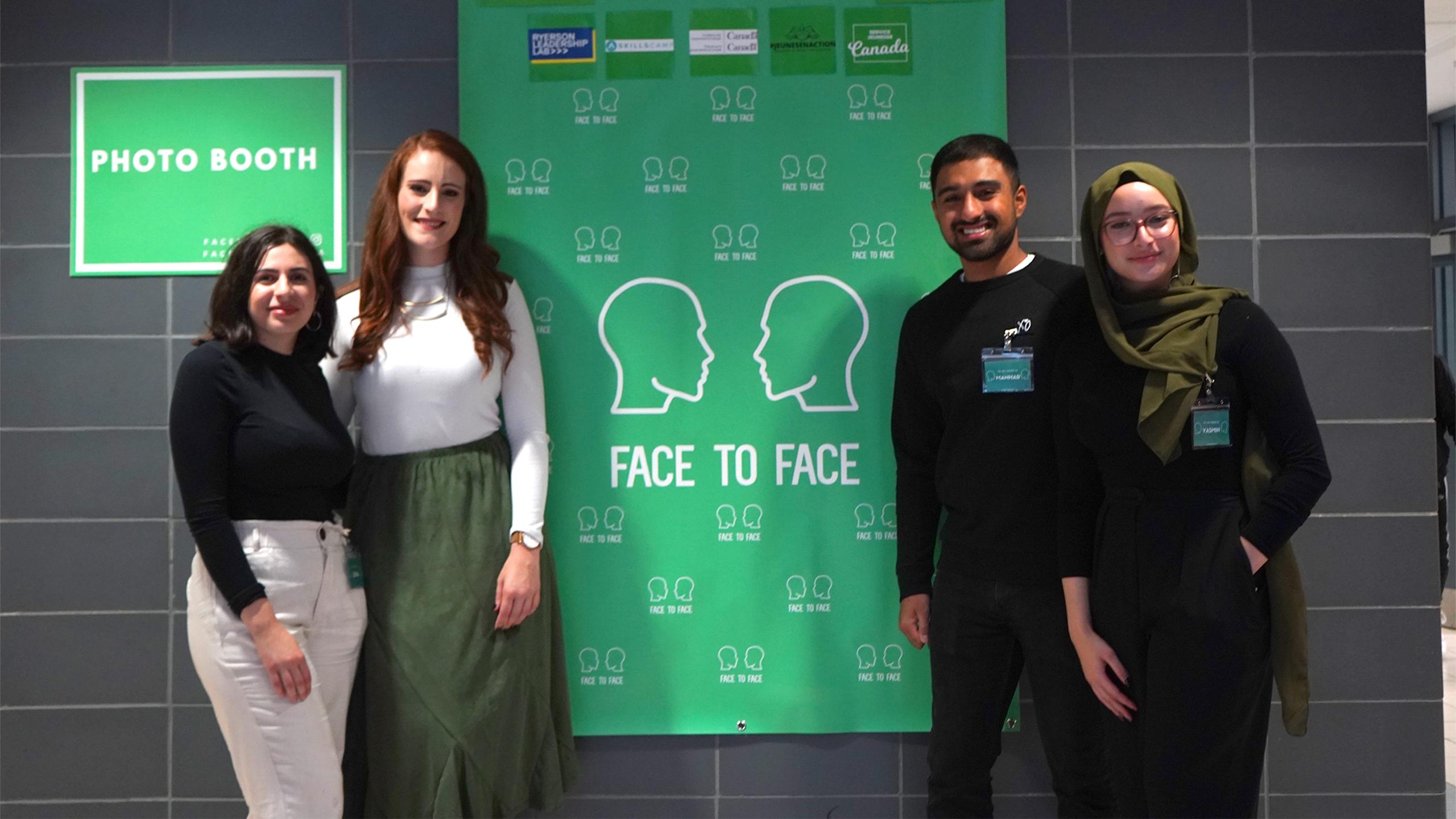By Kashish Hura
You may not be the most athletic, but your thumb can run a thousand miles scrolling through your Instagram feed. It is suffering. And so is your mental health. You just haven’t realized it yet.
A 2016 study of almost 1,800 adults aged 19 to 32 found that people who spent more time on social media were twice a greater risk of reporting eating concerns. A 2017 study with the same amount and age of participants found that social media users who visited a platform 58 times or more in a week were more than three times more likely of feeling socially isolated than users who visited platforms less than nine times a week.
The Eyeopener recently talked to the Ryerson students who founded Face to Face, a non-profit organization that seeks to teach teens how to have a healthy relationship with technology and work with them to give them the confidence to “de-commodify” themselves.
Their focus is mainly high school aged kids. It was created by Manhar Brar, a third-year entrepreneurship student, Yasmin Alameddine, a fifth-year psychology student and Rye psychology grad Lina Kanawati, who is now a Master’s e-health student at McMaster University. The non-profit is funded by the Ryerson Leadership Lab.
The Eye: Where did the name come from?
Manhar: We wanted the company to help restore authentic communications, face to face.
Where did the idea of the company come from?
Manhar: We met in a class called SSH505: Making the Future, where we were assigned to create a social campaign. We all had a passion for social change, specifically mental health and technology. We then specified a smaller demographic because there are not many student-led groups that are discussing this problem with social media. We did a little bit of branding and took the idea to Ryerson Leadership Lab and they helped us take it from there.
Lina: A lot of research showed us how significant of an issue this was and that was what inspired us to keep pushing forward.
How are you attacking the problem?
Yasmin: We’re trying to teach students that there are so many other ways to spend your time like journaling, meditating, or going for a run. Everyone’s so attached to their phones, like when you’re at a bus stop or in an awkward situation, your natural instinct is to look at your phone. You find so much comfort in that and no one really knows how to pull away from it.
We’re not saying to stop using your phone, or that technology is bad, we’re just trying to show people that there are real mental health risks that come with it. We’re also trying to show people how social media is using your attention as an economy, in which your attention is being sold to marketing companies.
If you’re googling how to get rid of acne but your entire feed is filled with people with beautiful skin, that’s obviously not going to help your mental health in any way or help you get rid of your acne. This is called target marketing and it’s going to make you feel much worse about yourself.
Lina: In an attention economy, the user has all the power. We want to help folks realize this. Realize that they’re the ones that control the economy, not the online businesses or influencers that are trying to control their mind. It’s their attention, money and time that gives these people power to exploit them.
What are the main mental health issues that come from social media?
Yasmin: Anxiety and overthinking. For instance, when something you post doesn’t get you the response you wanted, you immediately take it down. You start doubting yourself. You start thinking, “Is my cat cute?”, “Do people think I’m a crazy cat lady?” It twists your mind.
Manhar: Social media is also a wicked problem for creating unrealistic standards. When you’re scrolling through social media, you’re only seeing the highlight reel, the entire picture may be different. You’re seeing only one view of the situation. That’s not real or accurate, but has so many implications on your own self-perception. Your brain goes into overdrive.
What do people misunderstand about the impact of social media on mental health?
Lina: It’s the mentality that since social media is so ingrained in our daily lives, it’s so normalized that it doesn’t have an impact.
Manhar: And also underestimating the impact. It empties your mind. You’ll find yourself constantly opening and closing apps, refreshing them, like opening and closing the fridge late at night. We must use introspection as a tool and ask ourselves why.
What is a healthy and what is an unhealthy relationship with social media?
Lina: Overall, a healthy relationship with social media is when you’re using social media and it’s not causing you stress or negatively impacting your growth, development or mental health.
If I’m going on Instagram to see what my friends are up to, that’s completely different than me going on Instagram because I feel insecure or unhappy. Having that constant negative self-talk is what makes the relationship with social media unhealthy. We must use it more purposefully to recognize if you’re scrolling and you don’t remember what you’re looking at, you don’t care about the content, it’s not fulfilling for you, it’s not productive that it’s unhealthy.
What is an underrated strategy you want students to implement for healthier social media usage?
Lina: Logging how many times you pick up your phone. For instance, instead of picking it up to see and respond to every notification, check your notifications every 15 to 30 minutes. Check it for a certain amount of time during the day because if you’re able to do that, you’re thinking about it less and you’re less anxious. This is called checking your phone purposefully. It’s difficult, but good for your mental health.
Responses have been edited for length and clarity.













Prince
Relationship on social media are true .